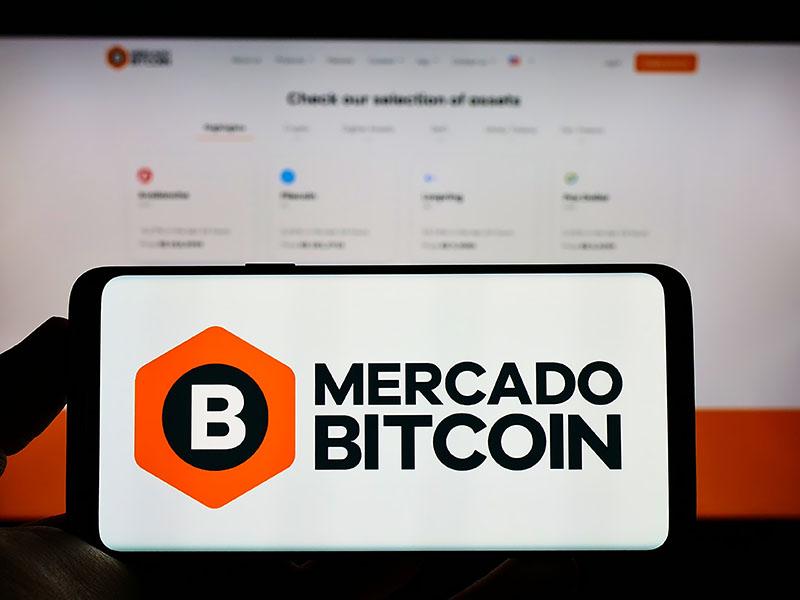[ad_1]
There are no food delivery apps in the small town of Arandas, a town of about 80,000 people in the tequila capital of the world: Jalisco, Mexico. Carlos Coronado, 24, grew up there and spent time working in restaurants. He knew that no matter the size of the town or whether it could be fully crossed in a 15-minute drive, people want the convenience of having someone else deliver their food to them. Since big, established last-mile deliveries were not deigning to set up shop in Arandas, though, he launched his own — Spidi — in March.
Besides tequila, tacos are the town’s specialty and they are everywhere. To get food delivered to your door, people send Spidi a WhatsApp message to make the order, then Spidi calls the restaurant, orders for their customer, picks it up, pays out of pocket, and delivers the food. “Rappi, Uber Eats, Didi Food, and others don’t reach towns like Arandas because they’re small,” said Coronado. And despite the clear demand for delivery services across the country, these delivery titans may be further away than ever from setting up shop in remote places like Arandas as investment runs dry.
Across Mexico and Latin America, delivery startups that received venture capital funding during the two-year global tech investment boom from 2019 to 2021 are now shifting gears to stay afloat and prove their viability in an age of inflation, scarce investment, and high interest rates. Rest of World spoke to the executives of four delivery companies, from billion-dollar giants such as Jokr to local players like Spidi about their response to these challenges. Despite their different sizes, they are optimistic, believing that to survive the investment drought in a market still thirsty for delivery solutions, they only need to hone in on the cities and regions where they are best-positioned.
Less than a year ago, Ronni Samir’s startup, PideDirecto, raised close to $6 million almost by accident. He was aiming for $3 million, but it was October 2021 and his startup, based in Monterrey in northern Mexico, helped resolve the pandemic-era demand for delivery services. Money was “free” back then, recalled Samir. Now every penny counts.
In 2020, e-commerce grew to around $85 billion in Latin America due to the pandemic. In Mexico alone, where less than 10% of retail sales happened online prior to the pandemic, e-commerce expanded by 81% in 2020, according to the Mexican Online Sales Association. Latin America offers opportunities that make it worth taking the risk. Online grocery businesses across the region represent a potential $1.2 trillion retail market — at less than 10% — has barely realized the potential of its online penetration.
PideDirecto emerged in 2020 during the investment bonanza in the region. Venture capitalists were funding emerging startups to get in on the e-commerce action as Amazon, Mercado Libre, and Rappi took over large swathes of the sector. PideDirecto is small compared to rivals like Jokr, the U.S.-founded e-grocer that launched in 2021 and became a unicorn by the end of the year. Yet, relatively tiny Mexican startups like PideDirecto, Orchata, and Calii emerged in the last few years to compete against the giants with sales pitches that involved becoming regional players.
$1.2 trillion The potential retail market of online grocery businesses in Latin America.
Source: TechCrunch
PideDirecto is based in Mexico’s second-largest metropolitan area and currently operates in the country’s top three metropolises, Mexico City and Guadalajara, alongside other medium-sized but growing cities like Mérida and Saltillo. It is this regionally-focused bent that might save these companies in these tougher times.
As the dust from the pandemic settles down, startups are recalibrating in order to consolidate their gains rather than starting new projects, launching new products, and opening new operations. “Our entrepreneurs are telling us they are finally able to breathe,” said Cecilia González Corral, a senior investment analyst at Proeza Ventures, a VC firm based in Monterrey and Houston, Texas. “A weight has been lifted from their shoulders to grow, grow, grow, burn burn, burn.”
González Corral explained to Rest of World that VCs “are seeing more down-to-earth- valuations and smaller rounds of funding.” Rather than searching for unicorns, investors are now talking about prioritizing “camels,” she said, referring to resilient startups with the capacity to survive long, dry funding spells.
PideDirecto is hoping to break even by the end of this month and is still experiencing 15 to 20% monthly growth. But even then, the startup has had to significantly alter its pace, Samir explained. Rather than burning cash by opening in new cities, it is focusing on its current locations and existing customers. The company hasn’t had layoffs, but it is restructuring its workflow to increase efficiency.
“Lots of startups are going to die for not having an off switch,” said Samir. But flipping the off switch means different things for each delivery startup.
For delivery giant Jokr, the off-switch came into play when it ended its U.S. and Europe operations this year to double down on its Latin American operations. It is currently operating in Mexico, Colombia, Peru, Chile, and Brazil. Like other tech startups in the food delivery sector, Jokr has to prove to investors that its business model is sustainable. “We’re pioneers in Latin America. We weren’t pioneers in Europe or the U.S.,” Germán Peralta, CEO of Jokr’s Northern Latin America division, told Rest of World. “In Latin America, we can benefit from the fact that there is a clearer way to disrupt the market.”

Meghan Dhaliwal for Rest of World
Similarly, for Mexican online grocer Jüsto, turning off geographic expansion was a perfect excuse to grow in its already-established markets across Latin America, including Mexico, Peru, and Brazil. The Mexico City-based online grocer has raised nearly $250 million since it launched three years ago and is still looking to hire people today, rather than lay off employees, Carlos Ranero, chief of growth of Jüsto, told Rest of World.
For multi-million dollar delivery startups like Jokr and Jüsto that have raised large rounds of funding, aggressive growth despite the current funding shortage might be the best way to keep afloat. “It’s not a matter of whether or not to invest in Latin America, but of how,” said Ranero.
“Consumers are falling back upon more traditional habits [as inflation increases], like going to the store to buy their groceries,” said Ranero. To counteract this trend, Jüsto now offers deals like free delivery for next-day deliveries or orders over a certain amount, explained Ranero. “We are focusing on a model of growing profitably, not just for the sake of growing,” he said, adding that Jüsto has enough capital to continue expanding in the next few months.
“It’s not a matter of whether or not to invest in Latin America but of how.”
Meanwhile, as these delivery titans compete for the region’s major cities, it still leaves a large segment of the market open to smaller delivery startups. According to Samir, most deliveries happen outside last-mile platforms like Uber Eats, Didi Food, and Rappi, with many depending on channels like WhatsApp, Facebook, and phone calls to get their deliveries — like Spidi does in Arandas. It is this untapped potential that keeps delivery companies of all sizes hopeful in the region.
“We are not targeting [Mexico’s three biggest cities] Guadalajara, Mexico City, Monterrey,” said Spidi’s co-founder, Coronado. His startup does not have grand plans to take over Mexico or Latin America. For him, growth looks local: He wants to consolidate in Arandas and neighboring towns, and eventually hopes to sell to businesses and entrepreneurs in even more remote and overlooked municipalities.
For now, Spidi’s biggest worry isn’t the Uber Eats of the world, but rather the three other individual restaurateurs that deliver food in Arandas. That’s why Coronado has broadened his startup delivery services beyond meals, delivering goods like cellphones to even the occasional pet after a customer ordered a pug. Spidi workers delivered the closest thing they could find: a Chihuahua.
[ad_2]
Source link















